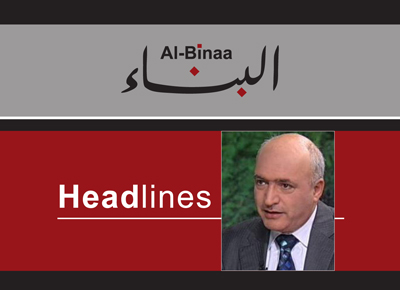President General Joseph Aoun Secures 99 Votes in the Second Round After Reaching Consensus: Inaugural Address: Electoral Law, Expanded Administrative Decentralisation, Judicial Independence, Refugee Repatriation
Defensive Strategy, First-Class Rotation, Depositor Funds, and Southern Reconstruction

January 10, 2025
The political editor wrote
Lebanon entered a new phase with the election of General Joseph Aoun as President of the Republic, securing 99 votes in the second round of the parliamentary session convened to elect a president. The first round had failed to conclude the electoral process, as Aoun, the sole candidate, did not achieve the required 86 votes. This was due to his status as an active military officer, with the constitutional provision in Article 49 barring such candidacies unless specific conditions are met. The second round succeeded after Amal and Hezbollah decided to back Aoun, granting him the votes of the Development and Liberation and Loyalty to the Resistance blocs. This consensus was reached following consultations between Speaker Nabih Berri, Arab and international officials, and meetings involving Amal and Hezbollah leaders with foreign envoys in Lebanon. These efforts culminated in a meeting between Aoun, Loyalty to the Resistance bloc head MP Mohammad Raad, and Speaker Berri’s political aide MP Ali Hassan Khalil. Observers noted this meeting finalised the consensus, which Raad later described as the resistance’s role in “protecting consensus, just as it protected the land”. Speaker Berri congratulated Aoun, stating, “Lebanon and the South await this new era”.
In his inaugural address, President Aoun outlined the president’s role as a fair arbiter among institutions. He pledged to work with the next government to pass a new law ensuring judicial independence, restructure public administration, and implement rotation in first-class public sector positions. Aoun emphasised the state’s exclusive right to bear arms, committing to invest in a military capable of securing borders, delineating them to the south, east, north, and at sea, combating smuggling, fighting terrorism, preserving national unity, and upholding international resolutions. He highlighted the army’s defensive doctrine to protect the people and fight wars in line with constitutional provisions. He called for discussions on a comprehensive defense policy as part of a national security strategy encompassing diplomatic, economic, and military dimensions to enable the Lebanese state – repeatedly emphasising state – to end Israeli occupation and counter aggression on all Lebanese territories. He also vowed to transparently reconstruct areas destroyed by Israeli aggression, including the South, the Bekaa, and the southern suburbs.
President Aoun committed to resolving the Syrian refugee crisis, acknowledging its existential impact on Lebanon. He pledged to collaborate with Syrian authorities and the international community to address the issue without resorting to racist or negative approaches. He called for the swift implementation of a clear mechanism to ensure their immediate return to Syria. Furthermore, he vowed to advance electoral law reforms to enhance power rotation, accurate representation, transparency, and accountability. He also committed to passing a law on expanded administrative decentralisation to alleviate citizens’ hardships and promote sustainable and inclusive development. Aoun emphasised the importance of supporting public schools, Lebanese universities, social security, and protecting depositors’ funds.




